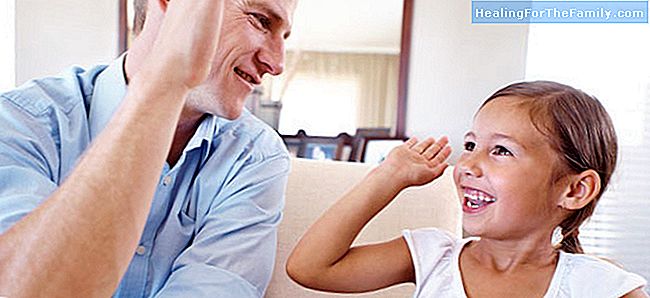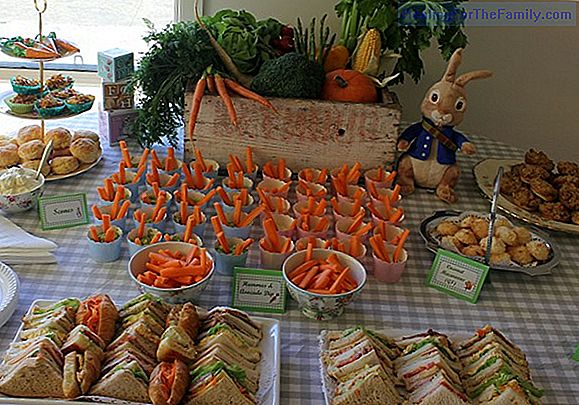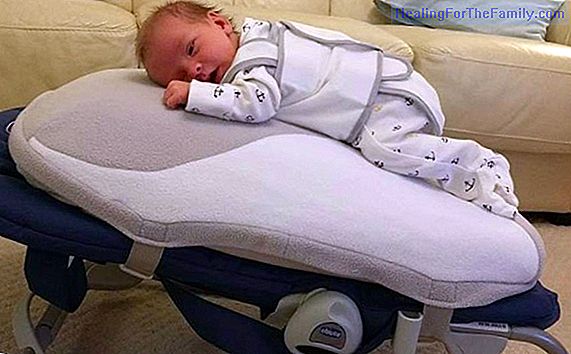How to change the child's behavior according to their personality
Not all children behave in the same way in the same situations. Your way of responding to the environment will depend on the type of character you have and your temperament. It is not the same to treat a child who is more aggressive or combative than the one who is more docile, we can not face the s
Not all children behave in the same way in the same situations. Your way of responding to the environment will depend on the type of character you have and your temperament.
It is not the same to treat a child who is more aggressive or combative than the one who is more docile, we can not face the same educational tools if we want to change their attitude. We tell you how parents can change the child's behavior according to their personality.
Different children's temperaments

There are different categories of children's temperament that serve as a guide to determine their behavior. These classify the children into:
- Easy temperament: They are cheerful and undemanding children, who adapt easily to routines. They adapt well to new situations and their emotions are quite moderate. They are reactions are as far as possible from aggressive or capricious behavior. They are docile children and easy to treat, but this does not mean neglecting the development of their personality.
- Fighting children: They are children who are characterized since they are born as very weeping, somewhat irritable and with great genius. They find it hard to adapt to any change. Everything seems wrong and they get nervous. They are demanding, nervous children, who show great exaggeration both to demonstrate happy and sad emotions. Fighting children are usually extreme. As soon as they catch a tantrum they look for affection.
- Children of slow adaptation: They are reserved children who do not adapt very well to changes. It characterizes the fearful being, very attached to their parents. In general, they tend to be quite passive and somewhat slow, shy and those who need a lot of time to do their homework. It may take a while for them to acquire skills, but in general their maturation ends up coming and they develop well with full competences.
- Active children: They are very restless children who do not stop for a second, who are interested in everything and who are asking all the time. They can be very reckless and sometimes suffer small accidents when they seek the "risk".
When they turn three years old, this active behavior increases, and their character can either be docile or combative. Hence, according to parents are perhaps the most difficult to carry.
Parents can watch their children carefully to determine what kind of temperament they have. On occasion, children may manifest the characteristics of one or more categories. Therefore, determining the "normal" behavior of a child is very difficult since being a "standard" child depends on many factors such as: age, personality, emotional and physical development.Furthermore, whether a behavior is classified as good or bad will be based on whether this behavior is socially accepted and falls within the standards of development. Therefore, it is very likely that a behavior becomes a problem if it does not match the expectations of the family and the environment surrounding the child.
How to improve the child's behavior according to their personality
Parents should not be disappointed with the temperament that the child has. Instead, he has to accept the children as they are and facilitate the best development for their children. The personality and its way of behaving can change a little but not at all.
Once the adults have accepted the basic personality of their child, they can go looking for the most suitable strategies according to the temperament of their children, it is about changing the child's behavior according to their personality. So,
In children of easy temperament:
- It is important that parents praise their children frequently, and when they deserve it.
- Stimulation and communication with them.
- Always attend to the expression of their emotions, the fact that they do not isolate themselves, that they feel integrated ....
- In summary, be very attentive to them.
In combative children:
- Avoid situations that can make the child very tired.
- Do not criticize your children in front of other people.
- Establish small routines, especially at bedtime.
- Establish some limits and some rules making him participant. Do not talk about them at the moment of "bad" behavior.
- Be demanding but showing them closeness and understanding through communication.
- Teach them to manage their anger and anger
In children of slow adaptation:
- Give them time and be very patient with them. If we call attention to their slowness we can develop anxiety and insecurity in them.
- Show them confidence in what they do.
- Pay close attention.
In active children:
- Avoid situations in which the child is overly stimulated or bored.
- Be an example when behaving in different situations.
- Act calmly and patiently and adapt to your rhythm. Many times when not doing it with this type of children falls into the error of diagnosing these little ones as ADHD.
- Adopt a companion role in the process of growth and maturation.












